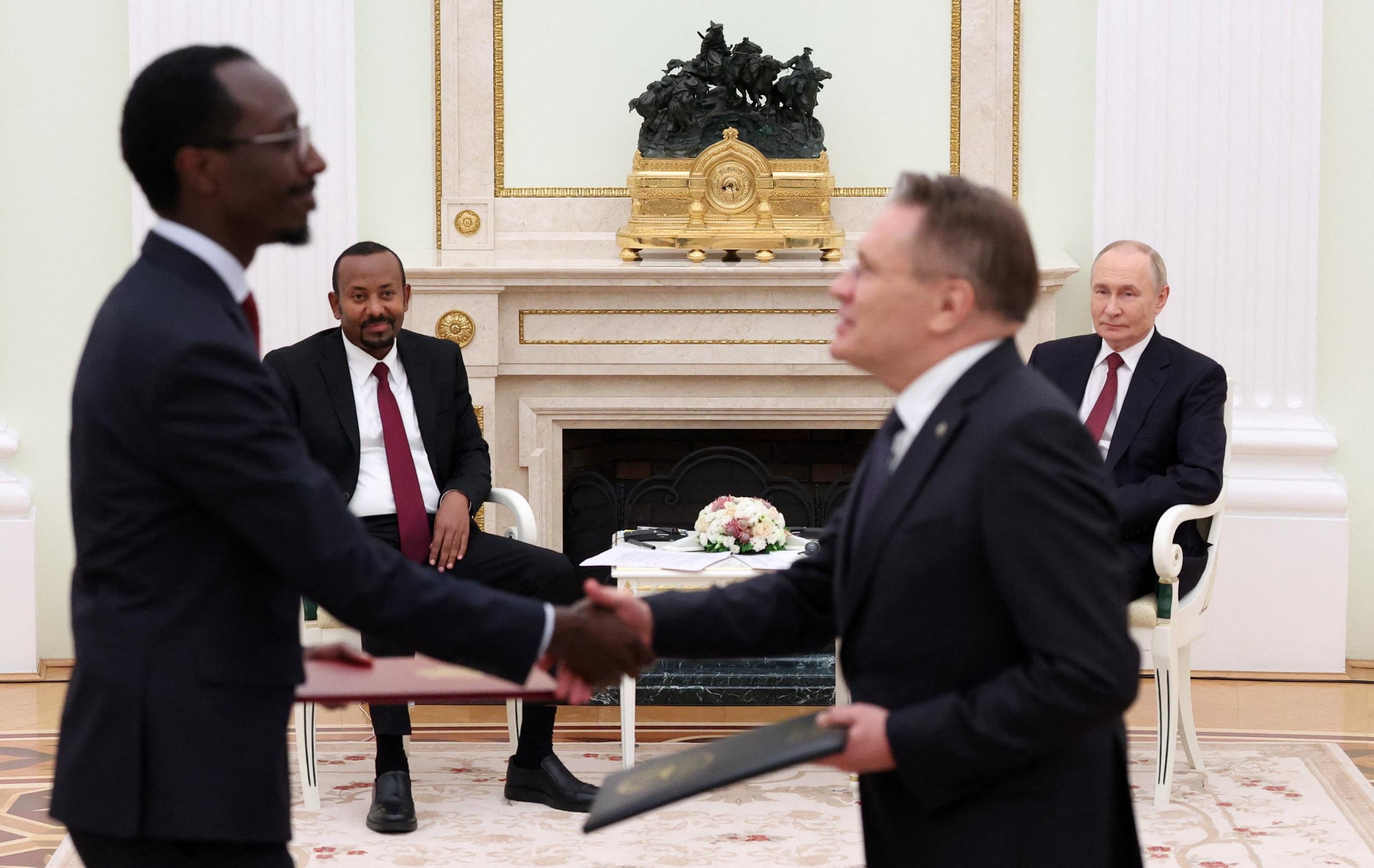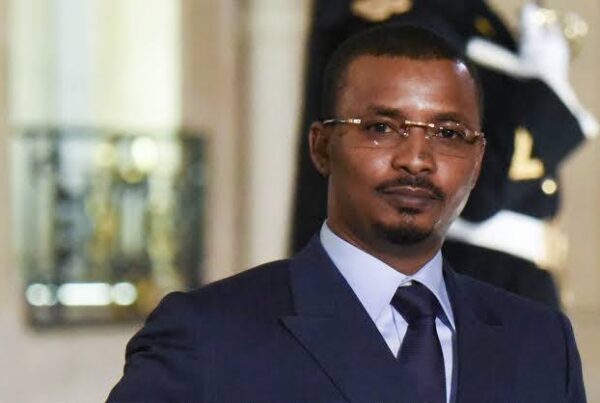Russia and Ethiopia have signed a significant document outlining the framework for the construction of a nuclear power plant in Ethiopia. The agreement marks a strategic step in bilateral cooperation that extends beyond energy, touching on technology transfer, economic collaboration, and workforce training.
The action plan was signed in Moscow by Rosatom CEO Alexey Likhachev and Ethiopian Electric Power CEO Ashebir Balcha. It sets the stage for long-term collaboration that could see Ethiopia become one of the few African nations to develop nuclear power capabilities, alongside South Africa. While the document is not a final construction contract, it establishes the roadmap for technical, regulatory, and economic preparations.
The Strategic Framework of the Nuclear Plan
The signing of this document represents more than just an initial step toward building a nuclear facility. It is a comprehensive framework designed to guide technical, institutional, and economic readiness over the coming decade. Ethiopia sees nuclear energy as a vital component of its long-term strategy to address power shortages and accelerate industrialization.
At the same time, Russia positions itself as a reliable partner for African nations seeking advanced energy solutions. Through Rosatom, Moscow has strengthened its presence in Africa, offering nuclear expertise that few other players can provide. The framework highlights this dual approach: Ethiopia’s pursuit of reliable electricity and Russia’s ambition to expand global nuclear partnerships.
Technical Roadmap and Infrastructure Development
The action plan includes the preparation of a detailed technical and economic roadmap. This involves site selection, feasibility studies, safety assessments, and planning for supporting infrastructure. Rosatom will provide technical expertise to ensure the project complies with international standards set by the International Atomic Energy Agency (IAEA).
Developing nuclear infrastructure goes beyond building reactors. It requires the establishment of institutions, safety regulators, and laboratories. Ethiopia will need to create a robust nuclear governance system, supported by Rosatom’s technical guidance. Experts suggest this phase could take several years before actual construction begins.
International observers emphasize the importance of ensuring environmental and safety standards. The history of nuclear projects worldwide shows that delays and cost overruns are common if early technical planning is not comprehensive. Ethiopia’s success will depend on balancing ambition with rigorous safety compliance.
Workforce Training and Human Capital
Another pillar of the agreement is the training of Ethiopian personnel to operate and maintain nuclear facilities. Russia has pledged to support Ethiopia in building a skilled workforce capable of handling the complexities of nuclear energy.
This includes scholarships, technical training programs, and exchanges between Ethiopian engineers and Russian nuclear institutions. For Ethiopia, developing local expertise is critical to ensure long-term independence in managing nuclear infrastructure.
Analysts point out that building human capital is one of the greatest challenges for any newcomer to nuclear power. Training nuclear engineers, regulators, and safety officers can take years. Without a robust pipeline of local experts, the sustainability of Ethiopia’s nuclear program could be at risk.
Economic Implications and Financing
The document also lays the foundation for financial discussions. Nuclear power is capital-intensive, with costs running into billions of dollars. Ethiopia must secure funding from a mix of state investment, international loans, and potential foreign investors.
Rosatom has traditionally offered build-own-operate models in other countries, where Russia not only builds but also helps finance and operate nuclear plants. It is possible that a similar arrangement could emerge in Ethiopia, though details remain under discussion.
Economists warn that financing such a project in Ethiopia will be complex. The country faces economic pressures, including foreign debt and inflation. Ensuring the nuclear project does not overburden national finances will be crucial. At the same time, proponents argue that nuclear power can provide reliable electricity to fuel industries, reduce blackouts, and support long-term growth.
Ethiopia’s Nuclear Ambition in Context
Ethiopia’s decision to embrace nuclear power is rooted in its growing energy demand. With one of the fastest-growing populations in Africa, the country faces chronic electricity shortages. Hydropower has long been Ethiopia’s backbone, but droughts have exposed vulnerabilities in its energy system.
Nuclear power is seen as a way to diversify energy sources and strengthen resilience. By partnering with Russia, Ethiopia joins a trend where African nations explore nuclear energy as part of their energy mix. Niger and Egypt have also engaged Rosatom in similar projects.
Historical Background of Cooperation
Russia and Ethiopia’s cooperation on nuclear energy dates back to 2017, when they signed their first intergovernmental agreement on the peaceful use of nuclear energy. Since then, several memoranda have been exchanged, paving the way for today’s action plan.
This continuity reflects Ethiopia’s sustained interest and Russia’s consistent strategy in Africa. While other global powers focus on renewable energy or fossil fuels, Russia has carved out a niche in nuclear cooperation. For Ethiopia, the partnership provides access to a technology that few other partners are willing to supply.
Regional and Geopolitical Impact
The deal has implications beyond Ethiopia. It strengthens Russia’s geopolitical influence in Africa at a time when Moscow faces isolation in other parts of the world due to ongoing conflicts. Nuclear energy cooperation offers Russia an avenue to build alliances and economic ties in a strategically important region.
For Ethiopia, the project is a signal of its ambition to rise as a regional power. By investing in nuclear energy, the country demonstrates its commitment to modernization and self-reliance. However, this move also places Ethiopia under international scrutiny, especially regarding nuclear safety, regulatory capacity, and financial stability.
Challenges and Risks
Despite the optimism, significant challenges remain. Nuclear power projects are known for delays, escalating costs, and political controversies. Ethiopia must carefully manage public perception, regulatory approval, and international oversight.
Another risk lies in the broader geopolitical climate. Russia’s involvement could complicate Ethiopia’s relationships with Western nations and international financial institutions. Balancing partnerships will be essential for Ethiopia to avoid overdependence on a single partner.
Experts also highlight the importance of waste management and decommissioning plans. These long-term responsibilities often outlast the initial enthusiasm for nuclear power. Without clear strategies, the project could face future obstacles.
Outlook for the Nuclear Project
The signing of this action plan does not mean immediate construction. Experts estimate that even if progress moves swiftly, it could take 10 years before Ethiopia’s first nuclear power plant becomes operational. The next five years are likely to focus on technical planning, workforce training, and securing financial backing.
This long timeline reflects the complexity of nuclear development. Yet, for Ethiopia, the potential payoff is significant. A stable nuclear energy supply could transform its industrial base, attract investment, and improve living standards for millions.
For Russia, the partnership strengthens its global nuclear portfolio and reinforces its strategic role in Africa. By supporting Ethiopia’s ambitions, Moscow positions itself as an indispensable partner in Africa’s energy future.
The coming years will test whether both countries can move from ambitious agreements to tangible progress. Success will require political commitment, financial discipline, and rigorous adherence to safety standards.
Ethiopia’s decision to work with Russia on nuclear power reflects both opportunity and risk. It is an ambitious project that could reshape Ethiopia’s energy landscape while deepening Moscow’s footprint in Africa. The outcome will depend on whether both nations can turn plans into reality. For readers seeking more updates on global energy and geopolitics, visit the International section of Olam News.






